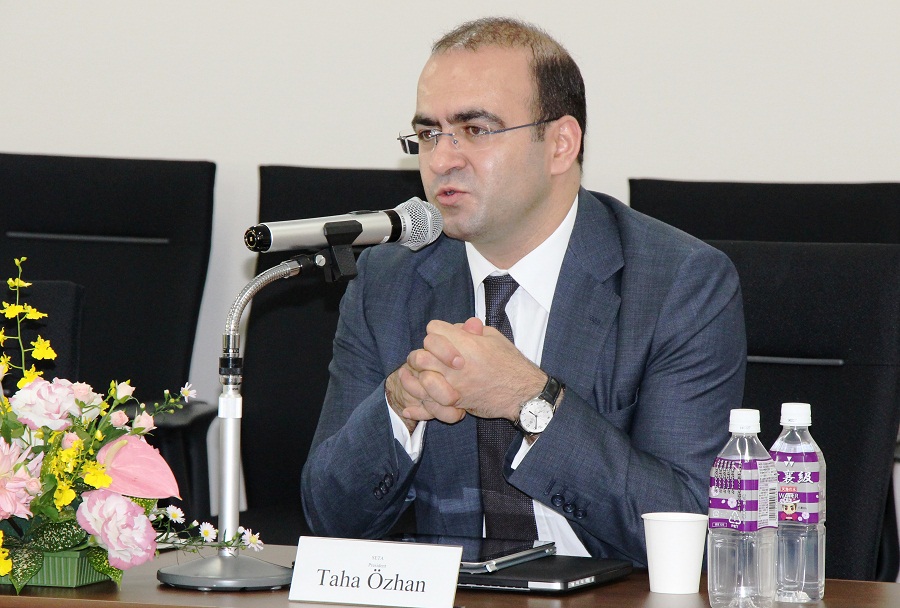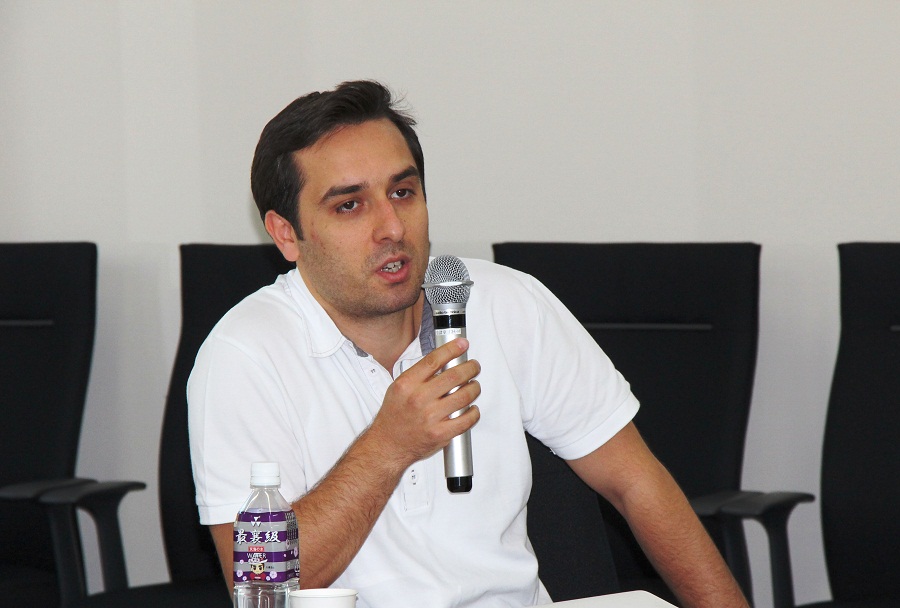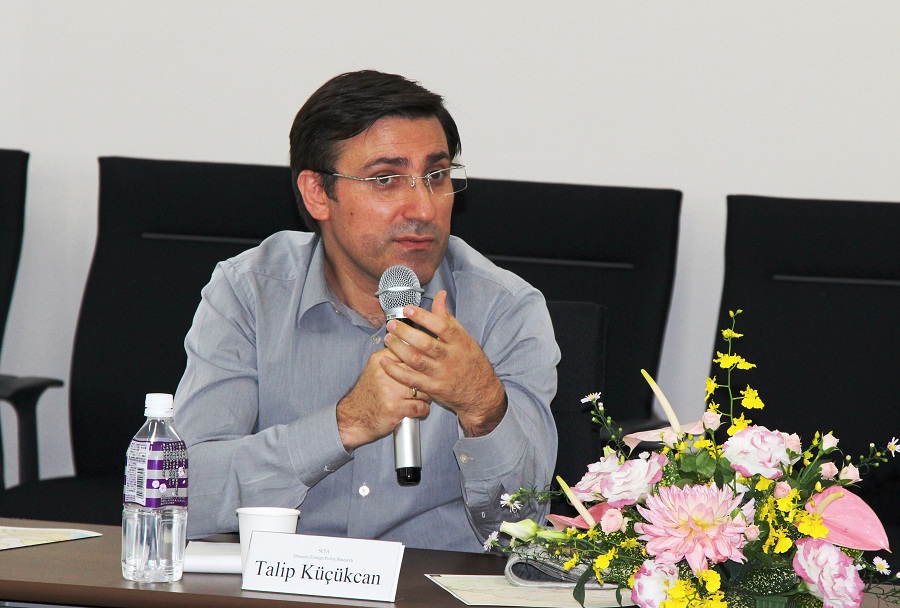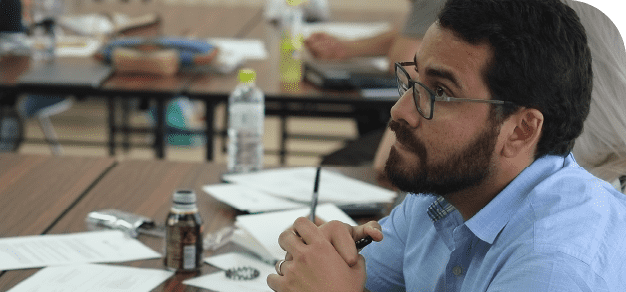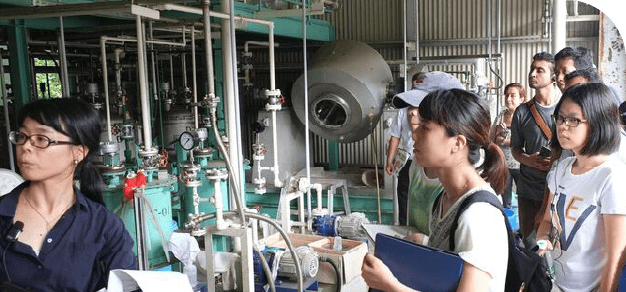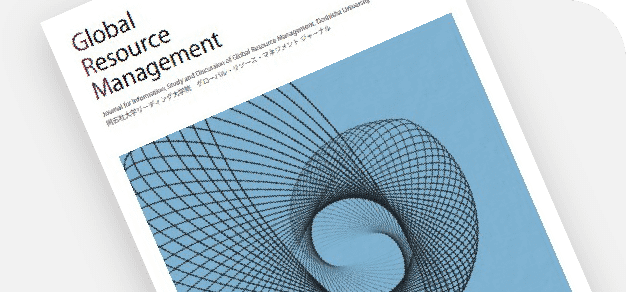GRM Students’ Reports
Comparison of the process of democratization in Turkey and Egypt
Graduate School of Global Studies Iyas Salim
2013/09/23
Date: Sep.27,2013(Fri)
Venue: IMADEGAWA(Karasuma Campus) Shikokan Conference Room (1F)
Theme: “Comparison of the process of democratization in Turkey and Egypt”
Lecturer: Mr. Taha Özhan(General Coordinator, Ankara, SETA (Foundation for Political, Economic and Social Research))
Panelist: Mr. Talip Küçükcan(Director, Ankara, SETA )
Panelist: Mr. Ufuk Ulutaş(Director, Ankara, SETA )
*********************************************
I will talk about Egypt and the “revolution” there. I have travelled to Egypt more than twenty times. I have been to Tahrir square which is considered to be the symbol of revolution. Unfortunatly, Tahrir square became also a symbol of street protest where parlimentary process is ignored at the parliament level. The military regime did not ignore the potential of Tahrir square. Thus, the square turned into an instrument by the military to interfere in the political process. So, from revolution to Coup, Tahrir was at the center of Egypt. Since February 11th of 2011, the military decided to carry on their grip on power and on the country without ex- president Mubarak. The establishment kept Mubarkism without Mubarak.
Egyptian poltiical system is used to military and judiciary interventions many times over under the tutelage of the Supreme Military Council. The parliamentary elections took place despite the obstacles presented and engineered by the establishments of the military and judiciary. It took two and a half months to complete the elections which were successful. For the first time, all segments of society were presented in the parliaments; from Islamists, secularists, Salafists, leftists and so on. The military did not seem to care much about parliamentary elections. Liberals misunderstood that by thinking that the military was beginning to accept democracy. However, the military made a blunt intervention through an administrative court to abolish the constitution making committee. The reaction by the Egyptians was modest against a very serious event. Another intervention was by the military but this time through the judiciary to cancel the presidential nomination of Muslim Brothhood’s candidate Mr. Khairat Al Shatter. Al Shatter is not in prison and he was the de-facto leader of the Muslim Brotherhood. He seemed as the only leader who could move the country forward. Al Shatter’s candidacy was canceled and therefore a new candidate, Mohammad Morsi, was introduced. The third serious intervention was the dissolution of the parliament on June 14th. 2012, using again the judiciary in which they abolished the parliment. That was a serious indication of what was coming in the future. The opposition secularists celebrated the decision. They thought of getting rid of “Islamists.” Egypt found itself in the middle of nowhere. Democracy became absent.
The Muslim Brotherhood need to be criticized for not showing any reaction when their leader Khairat Al Shatter was barred from the presidential candidacy. That was like a green light for the judiciary to follow with other serious decisions to come in the future. In my analysis, the military was the testing the opposition. The only remaining post opened for elections was the presidency. The military prepared and invested most of their resources for the elections of president. They nominated Ahmad Shafiq who lost against the MB candidate Morsi. The military came under international pressure to accept the election of Morsi. But two days before Morsi took over office, the military came up with decisions to deny the new incoming president much of his executive powers. Morsi started with no parliament. The army, the police and intelligence was working against him. Economy was in bad shape. And he had no constitution.
His first move was to bring back the parliament. Then, he canceled the decisions taken by the judiciary earlier. The military made a mistake through the issue of security in Sinai in which Morsi removed the head of the military council Mr. Tantawi. Morsi removed the head of military intelligence Mr. Murad Muafi. These moves gave Morsi the political capital to spend. Morsi, the newly elected president made two important decisions; a constitution-making committee and decreeing immunity on presidential decisions until the process of making constitution is completed. It was supposed to take one and a half months. The opposition liberals immediately reacted by accusing Morsi as the “new Mubarak” or a new Pharaoh. It was very harsh criticism. Everyone knew that the country was going nowhere. Morsi had to take such decisions to prevent caiousness.
Morsi made offers to various political forces but they were not appreciated. The liberals and secularists, like Mohammad Al Baradhi, rejected the offer. Even though, the entire cabinet of the government did not include more than forty percent of Muslim Brotherhood. So, Morsi was alone and powerless.
It is important to understand the make of Egyptian society. Muslim Brotherhood has been in the scene for more than eighty years which deep social experience. Salafists were formed mostly in the late 1980s and became an important political party. It was a movement encouraged and cared by Mr. Omar Suleiman, the second man in Mubarak regime, who wanted to split the Islamist camp. He wanted to undermine the Muslim Brotherhood camp. He was successful to some extent. As can be seen, the Muslims Brotherhood still holds the power base of society. Other segments are secularists Westernized Muslim political parties. And there are liberals; they call themselves liberals who are the most fanatical supporters of the military coup. There are nationalist or Nasirits. This is the Egyptian political map. If you look at the representation in parliment, about seventy to eighty percent were Islamists and the remaining are from the rest. That shows what Egyptian society is. It shows how long could the coup continue.
Right now, we are at a political deadlock. The leader of the coup, General Sisi, is planning to run for presidency. By the way, opposition leaders, secularists and nationalists under the leadership of Amero Mouse and Hamdien Sabahi, declared that Sisi should run for president. The dilemma is this. If Sisi could not run for president, he could not save himself and the tutelage. But, if Sisi does not let Morsi out and show a new political map, he cannot save Egypt. This is the dilemma.
After the coup, the military made some approach to the Anti-Coup Coalition which includes some Islamists, nationalists, liberals. The coalition demands Morsi to be free, setting a date for election and abolishing the new constitution committee. There is no need to make a new constitution. The cost is high. Thousands of people killed. Fifteen thousand people are in prison. The world is not showing much interest. The UN is not showing interest either as if Egypt is a company. Changing a product.
If you remember on July 3rd when the coup declaration was declared by Sisi, in the background there were Al Azhar Leader, Sal fists, Coptic leader and others. Now, this scene is dismantled. Al Azhar Sheikh, leader, could not go the university. Salafists are fragmented and the Coptic leader put the entire Christian base into a crisis. This was the seen backdrop of the coup. The unseen backdrop of the coup was Saudi Arabia and the Emirates who gave money to the coup and Western Green Light by not calling a coup a coup. Now, Saudi Arabia is asking about the fate of a three Billion Dollar where it is not being tracked down.
The only solution, again, is the release of Morsi, and setting a date for elections. Egypt is not a small country. Its population is ninety million people. You can manage this population by Marshal Rule by imposing a curfew on ninety million. The economy is getting worse. International pressure is not available now for such a political map.
Now talking quickly on Turkey. Turkey was a unique country where it called a coup a coup. Turkey helped Egypt much. We gave two Billion Dollars and technical help. That is gone. We had four Military coups in Turkey in the past. Almost all of them were very painful. In 1980 coup in Turkey, half million people were imprisoned. About two hundred people were hanged in one month after the coup. Many people tortured. Millions lost their jobs. Tens of thousands left Turkey. To start any political life in Turkey, it takes four years to start an election with a very heavy military and judicial tutelage system. We do know what a military coup means. That is why Turkey reaction was very harsh. It took some twenty five years since 1980 to move on. But, if you go back to the 1950s of first multi-party system, the 1960 coup took place. It took literally fifty years to move on. It was only in 2010 there we were able to change the constitution. That we got rid of the article that protected coup makers. Military made articles in the constituoin to provide them with legal immunization from the judiciary. Even if you do not have the historical background, for the sake of Human Rights, ethics and principles, you should be in a position; especially in you are an international actor, to talk about coup in the way it deserves.
